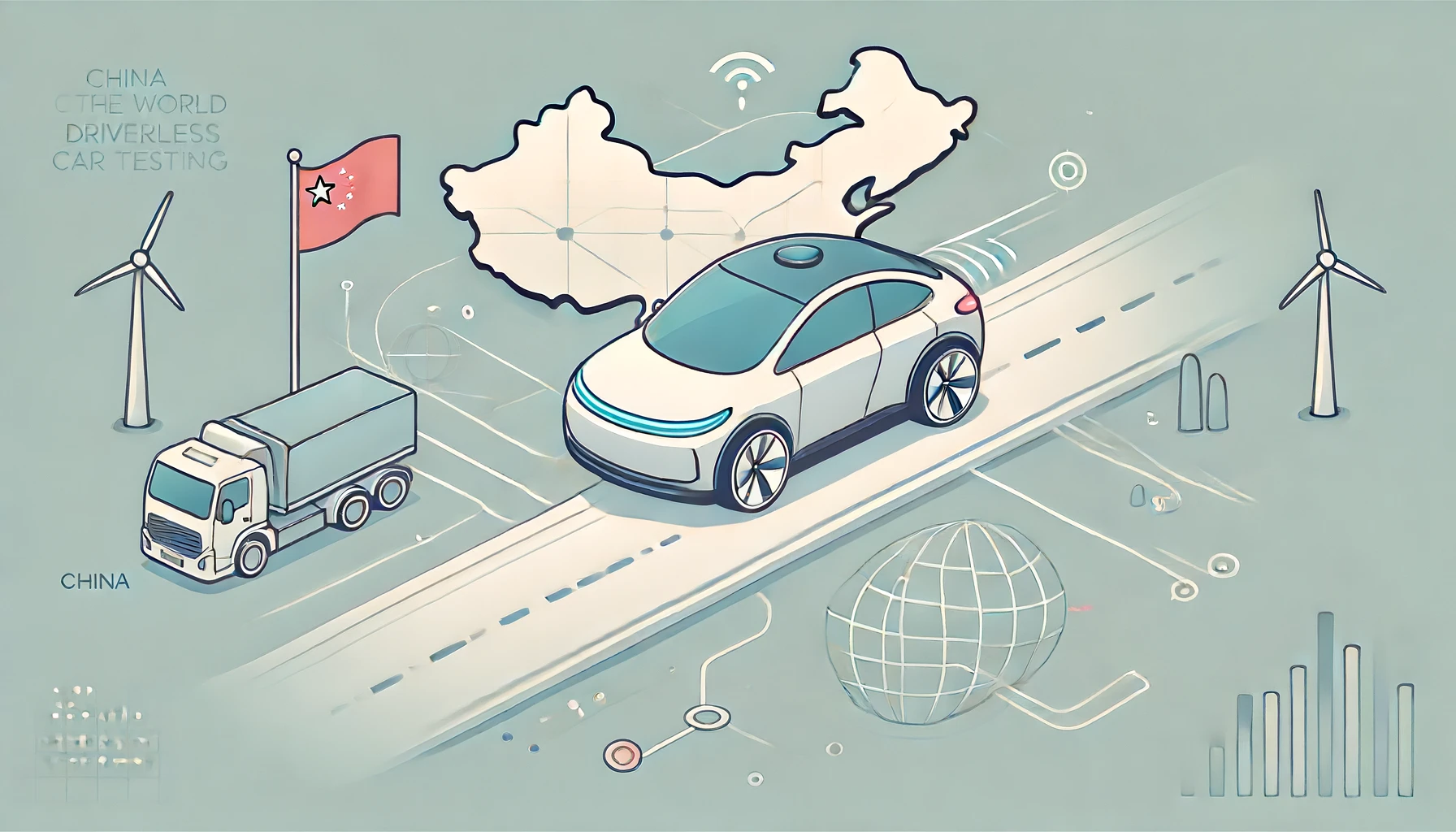
The bustling streets of Wuhan, a central Chinese city of 11 million residents, have become the epicenter of the world’s most extensive driverless car experiment. With a staggering 4.5 million vehicles navigating eight-lane expressways and iconic bridges over the Yangtze River, the city’s embrace of autonomous technology represents a significant leap in urban transportation.
Baidu, the tech behemoth spearheading this initiative, has deployed a fleet of 500 driverless taxis, often operating without safety drivers. This fleet is set to expand significantly, with plans to add another 1,000 “robot taxis” to Wuhan’s streets.
Across China, more than 16 cities have opened their roads to driverless vehicle testing, positioning the nation as a frontrunner in this revolutionary field. At least 19 Chinese automakers and their suppliers are fiercely competing to establish dominance, making China’s push into autonomous driving more aggressive than any other country.
To understand the scale and scope of these efforts, consider the following:
| City | Number of Autonomous Vehicle Permits | Notable Companies Involved |
|---|---|---|
| Wuhan | 500+ | Baidu |
| Beijing | 300+ | Nio, Baidu, SAIC Motor |
| Shanghai | 200+ | Tesla, Alibaba, SAIC Motor |
| Shenzhen | 150+ | Huawei, XPeng Motors |
| Chongqing | 100+ | Jiyue, BYD |
The Chinese government plays a pivotal role in supporting these companies, from designating specific areas for on-road testing to controlling the narrative around safety concerns. Online censorship has limited discussions about safety incidents, thereby reducing public anxiety about this emerging technology.
According to surveys by J.D. Power, Chinese drivers are notably more receptive to driverless technology compared to their American counterparts. This willingness to trust computers for their driving needs is echoed in the words of Zhang Ming, a grocery store owner in Wuhan: “I think there’s no need to worry too much about safety – it must have passed safety approval.”
China’s stringent data control policies have significantly contributed to its lead in the autonomous vehicle sector. Chinese companies have established research facilities in the United States and Europe, funneling their findings back home while ensuring that research conducted within China stays within its borders. This strategy has created a challenging environment for foreign carmakers to leverage their findings from China in other markets.
While China accelerates its autonomous vehicle deployment, the rest of the world approaches with caution. The United States has seen mixed results in its ventures into driverless technology:
- General Motors’ Cruise: Temporarily halted its robot taxi service in San Francisco after a pedestrian accident. Testing has resumed on a limited scale in Phoenix.
- Waymo: Formerly Google’s self-driving car division, continues testing over 200 vehicles across Phoenix, San Francisco, Los Angeles, and Austin. Federal safety reviews are ongoing.
- Ford and Volkswagen: Dissolved their robot taxi joint venture, Argo AI, but remain focused on developing advanced driving assistance systems.
Japan also took a step back, suspending its trial of slow-moving driverless golf carts after a minor incident, although testing has since resumed.
Tesla stands out in the U.S. market with its aggressive advancements in driver assistance technologies. Despite its “Autopilot” and “Full Self-Driving” systems not being fully autonomous, CEO Elon Musk announced plans for a “Tesla Robotaxi unveil on 8/8”. However, Tesla’s progress in China faces hurdles due to the nation’s tight data control and the need for high-resolution maps, which it cannot directly access.
China’s ecosystem for driverless cars is growing robustly. In Beijing, nine automakers, including Nio, BYD, and SAIC Motor, have been authorized to test advanced driving systems that surpass Tesla’s current offerings. These tests, while initially confined to controlled areas, represent a significant step forward.
Key players in China’s autonomous vehicle market include:
- Baidu and Huawei: Both are instrumental in supplying technologies to various automakers.
- Jiyue: A joint venture between Baidu and Zhejiang Geely focused on manufacturing robot taxis.
The China Society of Automotive Engineers projects that by 2030, 20% of all cars sold in China will be fully driverless, with another 70% equipped with advanced assisted driving technologies. This forecast underlines China’s potential to dominate the global autonomous vehicle market.
In contrast, the adoption of driverless cars in the United States hinges largely on the transition to electric vehicles, which align better with autonomous technology due to their quick and precise power adjustments.
China’s market already sees battery electric cars comprising about 25%, compared to only 7% in the United States. This disparity highlights the advanced state of China’s electric vehicle market and its readiness for integrating driverless technology.
Security remains a concern globally, with data from driverless cars potentially used for tracking and mapping sensitive areas. While the U.S. and Europe currently permit sending driving data to China, this could change as regulatory bodies evaluate the implications.
U.S. Commerce Secretary Gina Raimondo has hinted at forthcoming regulations for vehicles electronically linked to China, and Europe is beginning its own assessments.
Wang Yunpeng, president of Baidu’s intelligent driving business group, asserts that Baidu’s experience operating fully driverless cars in Chinese cities like Wuhan has given the company a three-to-five-year advantage over competitors such as Tesla.
From the coastal ports of Shenzhen and Fuzhou to the mountainous metropolises of Chongqing and Chengdu, cities across China are fostering broad experimentation with autonomous vehicles, solidifying the nation’s position at the forefront of this technological frontier.
- Wuhan is the testing ground for the world’s largest driverless car experiment, led by Baidu.
- China aggressively pursues autonomous vehicle technology with support from its government.
- Public trust in driverless technology is higher in China compared to the United States.
- Data control plays a crucial role in China’s dominance in the field.
- Safety and regulation remain key concerns globally as the world adapts to driverless technology.
As cities across China embrace autonomous vehicles, the nation continues to lead the charge in redefining the future of transportation.
